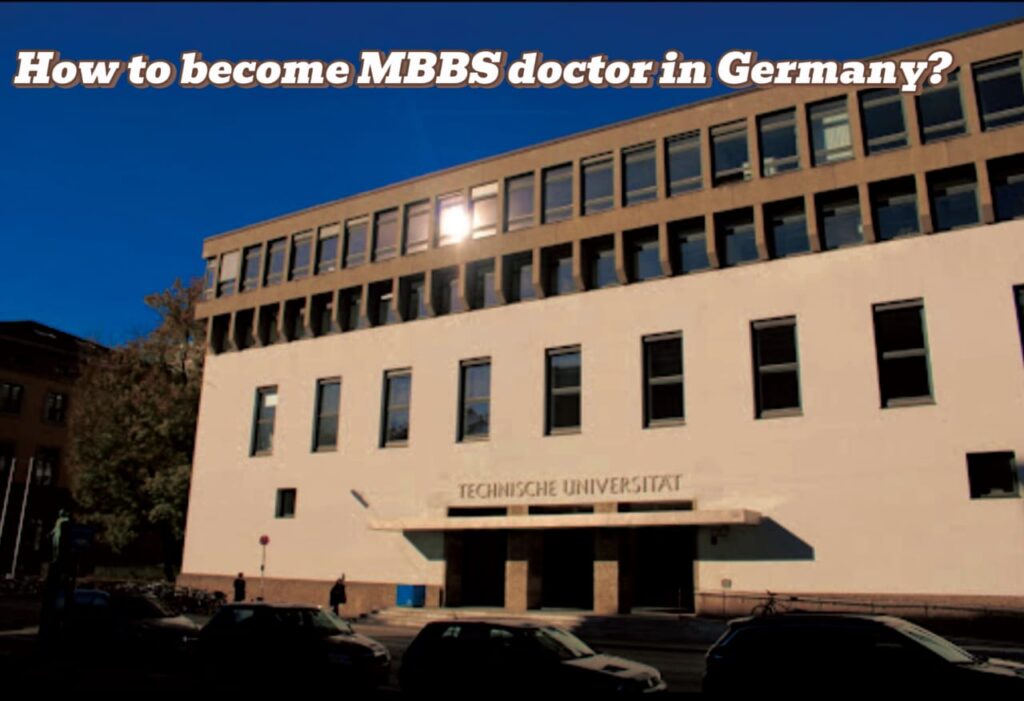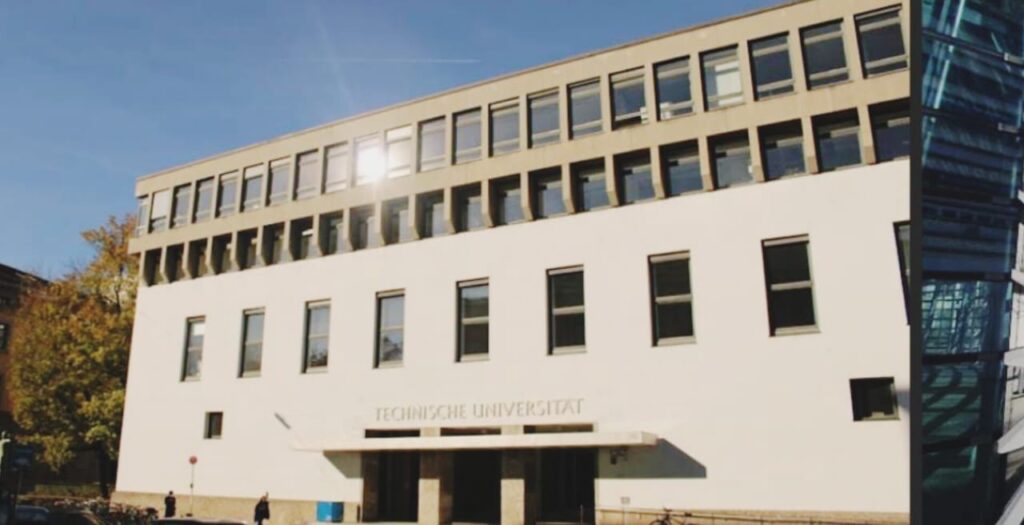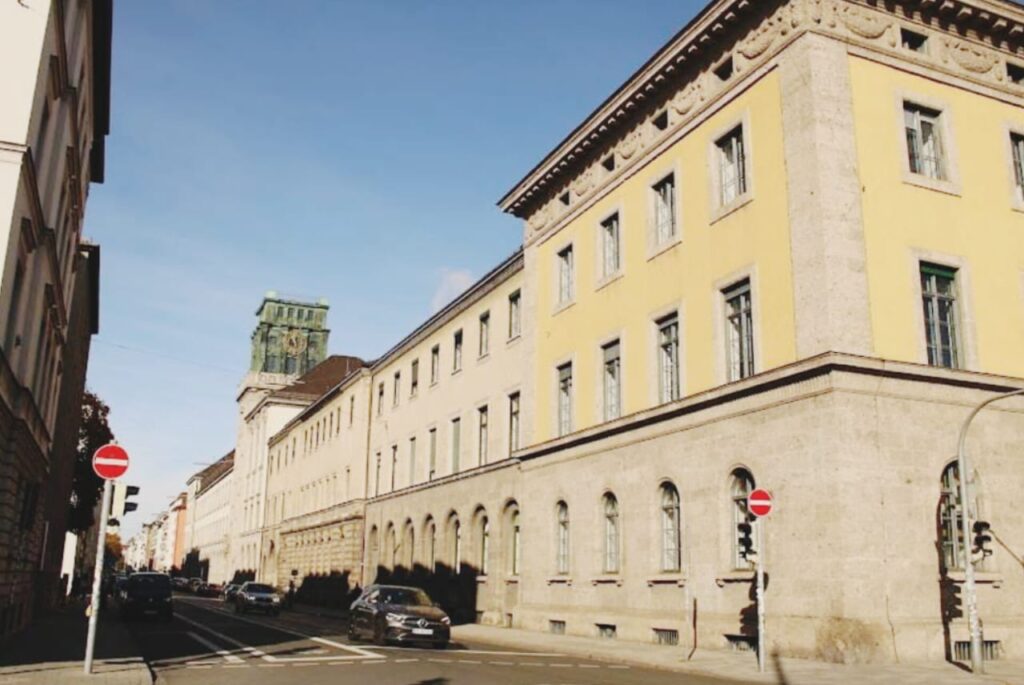Germany has emerged as a prime destination for international students aspiring to study medicine. The country boasts an outstanding medical education system that emphasizes both theoretical knowledge and practical experience.

Why Study Medicine in Germany?
Choosing to study medicine in Germany offers a plethora of benefits that set it apart from other countries
1. High-Quality Education
German universities are globally recognized for their rigorous academic standards and comprehensive medical programs. Institutions like Heidelberg University and Ludwig Maximilian University of Munich are consistently ranked among the best in the world.
2. Affordable Tuition Fees
Compared to countries like the USA and the UK medical school costs in Germany are relatively low. Public universities often charge minimal tuition fees making it financially accessible for international students.
3. Diverse Cultural Experience
Germany is home to a vibrant mix of cultures, allowing students to engage with peers from various backgrounds. This diversity enriches the learning experience and fosters a global perspective in the medical field.
4. Strong Healthcare System
Germany boasts one of the worlds most efficient healthcare systems. Studying here provides students with exposure to advanced medical practices and technologies preparing them for successful careers.
5. Post-Graduation Opportunities
With a high demand for healthcare professionals graduates often find ample job opportunities in both public and private sectors. Moreover international students can apply for residence permits to work after graduation.
6. Multilingual Environment
While many medical programs are offered in German there are an increasing number of English taught programs. This makes it easier for international students to adapt while also encouraging them to learn the German language.
In summary studying medicine in Germany not only offers an excellent education but also opens doors to numerous career opportunities in a culturally rich environment.
Overview of the Medical Education System
The medical education system in Germany is structured to provide comprehensive training for future healthcare professionals. Here’s an overview of the key components involved in studying medicine in Germany.
1. Medical Degree Structure
The path to becoming a doctor typically involves the following phases;
- Preclinical Phase
This phase lasts about two years and focuses on basic medical sciences, including subjects like anatomy, physiology, and biochemistry.
- Clinical Phase
Lasting another three years this phase emphasizes clinical training where students gain hands on experience in hospitals and clinics.
- Practical Year
The final year is dedicated to practical training in various medical specialties allowing students to apply their knowledge in real world settings.
2. Duration of Study
The entire medical education program usually takes around six years culminating in the state examination which is necessary to obtain a medical license in Germany.
3. Medical School Requirements in Germany
To be eligible for medical school students must fulfill specific requirements including educational qualifications language proficiency and entrance exams which will be detailed in the subsequent sections of this guide.
4. Language of Instruction
While many medical programs are taught in German a growing number of universities offer courses in English. However proficiency in German is crucial for clinical interactions and examinations as most patient care is conducted in German.
5. Accredited Medical Schools
Germany has a robust network of accredited medical schools including prestigious institutions like
- Heidelberg University
- Charite Universitatsmedizin Berlin
- University of Hamburg
These universities are recognized for their research output and clinical training programs.
In conclusion the German medical education system is designed to provide a thorough and practical education preparing students for the complexities of modern healthcare. The following sections will delve into the specific requirements and steps needed to successfully apply to medical schools in Germany.

Step 1 Pre Medical Requirements
Before applying to medical school in Germany international students must meet certain pre medical requirements. This section outlines the educational prerequisites recommended high school subjects and any entrance exams that may be necessary.
Educational Prerequisites
To qualify for medical school students need to fulfill the following educational criteria
- High School Diploma
Applicants must possess a secondary school diploma that is equivalent to the German Abitur. This is often assessed through the UNESCO International Standard Classification of Education (ISCED)
- University Entrance Qualification: If you have completed your education outside of Germany you may need to obtain a recognition of your qualifications through services like Anabin
Recommended High School Subjects
While specific subject requirements may vary by university it is generally advisable for aspiring medical students to focus on the following subjects in high school
- Biology
A solid foundation in biology is crucial for understanding medical concepts.
- Chemistry
This subject is essential for grasping pharmacology and biochemistry.
- Physics
Basic principles of physics are applicable in various medical fields.
- Mathematics
Strong mathematical skills are beneficial for data analysis and statistics in medicine.
Entrance Exams Required
In addition to meeting educational prerequisites some universities may require students to take entrance exams such as:
- Test for Medical Studies (TMS)
This aptitude test evaluates your skills in areas relevant to medical studies including logical reasoning and comprehension. While not mandatory for all universities a high score can enhance your application.
- Language Proficiency Tests
Non-native German speakers must prove their proficiency in the language through tests such as the Deutsche Sprachprüfung für den Hochschulzugang (DSH) or TestDaF.
Meeting these pre medical requirements is a crucial first step in your journey to study medicine in Germany The next section will guide you through the application process for medical schools.
Step 2 Applying to Medical School in Germany
Once you have met the pre medical requirements the next step is to apply to medical schools in Germany. This section outlines the application process for international students key deadlines and the documents required for admission.
Application Process for International Students
The application process typically involves these following steps
- Choose Your University
Research and select universities that offer medical programs suited to your interests. Pay attention to their specific requirements and language of instruction.
- Uni Assist
Many universities use the Uni Assist service for international applications. You will need to create an account submit your application online and send required documents to Uni Assist for verification.
- Direct Applications
Some universities may accept direct applications. Always check the specific application guidelines on each university’s website.
Key Deadlines and Timelines
- Winter Semester (October Start)
- Summer Semester (April Start)
Its essential to keep track of these deadlines to ensure your application is submitted on time
Documents Required for Admission
When applying to medical school you will need to provide several documents including;
- Academic Transcripts
Official records of your high school education translated into German or English if necessary.
- Language Proficiency Certificates
Proof of German language proficiency such as DSH or Test DaF results.
- Motivational Letter
A personal statement explaining your interest in studying medicine and your career aspirations.
- Letters of Recommendation
Typically from teachers or professionals who can vouch for your academic abilities and character.
- Passport Copy
A valid passport for identification purposes.
- Proof of Financial Resources
Evidence that you can support yourself financially during your studies often required for visa applications.
Completing the application process meticulously is crucial for a successful admission into medical schools in Germany. The next section will cover the structure of medical education in Germany detailing the curriculum and training components.
Step 3 Medical School Structure in Germany
Understanding the structure of medical education in Germany is essential for aspiring medical students This section provides an overview of the medical curriculum clinical rotations practical training and the duration and cost of medical education.
Overview of the Medical Curriculum
The medical curriculum in Germany is designed to provide students with a comprehensive education that balances theoretical knowledge and practical skills
Preclinical Phase (Years 1-2)
- Focuses on foundational subjects such as anatomy physiology biochemistry and medical ethics.
- Students engage in lectures lab work and introductory courses that prepare them for clinical training.
- Clinical Phase (Years 3-5)
- This phase emphasizes clinical medicine including subjects like internal medicine surgery pediatrics and psychiatry.
- Students participate in hands on training and clinical placements in hospitals allowing them to apply their knowledge in real patient care settings.
- Practical Year (Year 6):
- The final year consists of a practical year (Praktisches Jahr) where students rotate through various medical specialties.
- This year is crucial for gaining in depth clinical experience and preparing for the state examination.
Clinical Rotations and Practical Training
During the clinical phase and practical year students are required to complete clinical rotations in different medical fields Typical rotations may include
- Internal Medicine
- Surgery
- Obstetrics and Gynecology
- Pediatrics
- Psychiatry
- General Practice
These rotations provide students with exposure to various specialties allowing them to develop essential clinical skills and competencies.
Duration and Cost of Medical Education
- Duration: The entire medical education program typically lasts six years including the practical year
- Cost:
- Tuition Fees
Public universities in Germany often charge minimal tuition fees usually ranging from €250 to €500 per semester.
- Additional Costs
Students should budget for living expenses books and healthcare insurance. The total estimated cost of living ranges from €700 to €1200 per month depending on the city.
Understanding the structure of medical education in Germany will help you navigate your academic journey more effectively. The next section will cover the necessary exams licensing requirements and certifications needed to practice medicine in Germany.
Step 4: Exams Licensing, and Certifications
After completing your medical education you will need to pass specific exams and obtain necessary certifications to practice medicine in Germany. This section outlines the required licensing exams and the certification process after graduation.
Required Licensing Exams in Germany
To become a licensed physician in Germany medical graduates must pass the State Examination which is divided into three parts;
- First Exam (Erster Abschnitt der Arztlichen Prufung)
- Taken after the preclinical phase
- Focuses on fundamental medical sciences such as anatomy physiology and biochemistry
- Second Exam (Zweiter Abschnitt der Arztlichen Prufung):
- Conducted after the completion of the clinical phase.
- Assesses clinical knowledge and skills through both written and oral examinations.
- Third Exam (Dritter Abschnitt der Arztlichen Prufung):
- Taken after the practical year.
- Evaluates clinical skills and decision-making in real life scenarios through practical assessments.
Passing these exams is crucial for obtaining a medical license (Approbation) in Germany.
Certification Bodies and Exams After Graduation
After passing the state examinations graduates must register with the State Medical Board (Landesarztekammer) in the state where they intend to practice This process includes;
- Application for Approbation
Submitting required documents such as proof of exam results health insurance and a criminal record check.
- Language Proficiency
Non native speakers may need to demonstrate proficiency in German as effective communication with patients is essential.
Additional Certifications
After obtaining the Approbation many doctors choose to specialize further. This involves additional training and examinations in specific fields leading to a board certification in areas such as
- Surgery
- Internal Medicine
- Pediatrics
- Psychiatry
Specialization typically requires several years of residency training and passing further exams specific to the chosen field
In summary understanding the licensing process and exams is vital for international students planning to practice medicine in Germany.
Step 5–Post-Graduation Pathways
After successfully completing medical school and obtaining your license to practice the next step is navigating the various post graduation pathways available in Germany. This section covers internship and residency programs steps to achieve full medical licensure and options for specialization and further training.
Internship and Residency Programs in Germany
Once you have your medical license the next phase involves undertaking an internship and residency which are essential for gaining practical experience in the field Here’s how it works
- Internship (Praktisches Jahr)
- While the practical year is part of your medical education some students may choose to continue with an internship in a specific area of interest after graduation.
- This stage provides hands on experience in clinical settings allowing you to work under supervision in hospitals or clinics.
- Residency Programs (Facharztausbildung)
- After your internship you can enter a residency program in a specialty of your choice. This training lasts between 5 to 6 years depending on the specialty.
- Common specialties include general practice surger pediatrics and internal medicine. During residency you will work in various departments gaining comprehensive experience in your chosen field.

Steps to Achieve Full Medical Licensure
To achieve full licensure as a specialist you must
- Complete Residency Training
Successfully finish the required years of residency in your chosen specialty.
- Pass the Specialist Examination (Facharztprüfung)
This final exam tests your knowledge and skills in your specialty area.
- Obtain Board Certification
After passing the exam you will receive board certification allowing you to practice as a specialist in your field.
Specialization and Further Training Options
Medical graduates have various options for specialization and further training including
- Fellowships
These are advanced training programs focusing on specific sub specialties such as cardiology or oncology
- Continued Professional Development
Many healthcare institutions in Germany offer ongoing training and professional development opportunities to keep skills current.
- Research Opportunities
Graduates interested in academia can pursue research positions often leading to a PhD in medical sciences or related fields.
In summary post graduation pathways in Germany are structured to provide a comprehensive training experience allowing you to develop expertise in your chosen specialty. The next section will focus on the costs associated with studying medicine in Germany including tuition fees and living expenses.
Cost of Studying Medicine in Germany
Understanding the financial aspects of studying medicine in Germany is crucial for international students. This section breaks down tuition fees living costs and potential scholarship options.
Tuition Fees for Medical Schools in Germany
- Public Universities
Most medical schools in Germany are public institutions that charge very low tuition fees. On average these fees range from €250 to €500 per semester primarily covering administrative costs and student services
- Private Universities
While there are some private medical schools in Germany tuition can be significantly higher ranging from €10000 to €30000 annually Students should carefully consider the benefits and drawbacks of enrolling in a private institution.
- Additional Costs
- Enrollment Fees
These may vary by university and can range from €100 to €300 per semester.
- Student Union Fees
Typically around €50 to €150 per semester, these fees support student activities and services.
Cost of Living
Living expenses in Germany can vary significantly depending on the city you choose to study in.
- Accommodation
€300 to €800 (shared apartments or student housing)
- Food
€200 to €400
- Health Insurance
€100 to €200
- Transportation
€50 to €100 monthly public transport pass
- Miscellaneous Expenses
€100 to €200 entertainment personal items etc.
Overall the total estimated monthly living costs range from €700 to €1200 depending on lifestyle choices and location.
Scholarships and Financial Aid Options
To help alleviate financial burdens several scholarship opportunities are available for international students
- DAAD Scholarships
The German Academic Exchange Service (DAAD) offers scholarships for international students based on academic merit and financial need.
- University Scholarships
Some universities provide their own scholarships for outstanding international students.Check individual university websites for specific programs.
- Government and Private Scholarships
Various organizations and foundations offer financial aid for medical students. Research options based on your home country and field of study.
By planning ahead for tuition and living costs as well as exploring scholarship opportunities students can make studying medicine in Germany a more financially manageable experience The next section will cover visa requirements for international medical students
Visa Requirements for International Medical Students
For international students wishing to study medicine in Germany obtaining the appropriate visa is essential. This section outlines the visa process work permits and post graduation work opportunities.
Student Visa Process for Germany
- Acceptance Letter
Before applying for a student visa you must secure an acceptance letter from a recognized German university.
- Financial Proof
You will need to demonstrate that you can support yourself financially during your studies As of 2024 students are typically required to show that they have access to approximately €10332 per year (or €861 per month)
- Health Insurance
Health insurance is mandatory for all students in Germany. You must provide proof of valid health insurance coverage either through a German provider or an equivalent international plan.
- Visa Application
Completed visa application form
- Valid passport
- Acceptance letter from a German university
- Proof of financial resources
- Health insurance documentation
- Academic transcripts and qualifications
- Visa Interview
you may be require to attend an interview at embassy.
Work Permit and Post-Graduation Work Opportunities
- Part-Time Work
- Post-Graduation Work Permit
After completing your medical degree international graduates can apply for an 18-month residence permit to seek employment in Germany During this time you can work in any job related to your field of study or gain experience in a different area.
- Transition to a Full Work Visa
If you secure a job in your field you can apply for a work visa. Requirements typically include a valid job offer and proof of qualifications.
Understanding the visa process and work opportunities available to international students is crucial for successfully transitioning into your medical career in Germany The next section will explore the career prospects for doctors in Germany including job market trends and expected salaries
Career Prospects for Doctors in Germany
After completing your medical education and obtaining your license you will find numerous career opportunities in Germany’s robust healthcare system. This section discusses the job market for medical graduates expected salaries and employment opportunities.
Job Market for Medical Graduates
The demand for healthcare professionals in Germany is consistently high due to an aging population and an increasing focus on healthcare services.
High Demand
There is a persistent shortage of doctors particularly in rural areas and specific specialties such as general medicine psychiatry and geriatrics
- Diverse Opportunities
Medical graduates can find employment in various settings including
- Hospitals and clinics
- Research institutions
- Public health organizations
- Private practice
- Academia and teaching hospitals
- Integration Support
Many hospitals and clinics offer integration programs for international medical graduates which can include language courses and cultural orientation to help adapt to the German healthcare system.
Expected Salaries and Employment Opportunities
- Entry Level Salaries
Starting salaries for newly qualified doctors typically range from €50000 to €60000 per year depending on the region and the healthcare facility.
- Salary Progression
With experience and specialization doctors can expect their salaries to increase significantly
- Specialists can earn between €70000 and €100000 or more annually
- Senior consultants and department heads may earn upwards of €120000.
- Job Security Given the ongoing demand for medical professionals job security in this field is relatively high Many doctors find stable positions shortly after graduation.
Career Advancement
- Specialization
Pursuing further specialization can open doors to higher salaries and more prestigious positions. Specialties like cardiology surgery and anesthesiology are particularly lucrative.
- Continued Education
Participating in continued professional development and research can enhance your qualifications and career prospects.
In conclusion the career prospects for doctors in Germany are favorable with a high demand for skilled professionals and competitive salaries The next section will summarize key takeaways for aspiring doctors and provide resources for more information.

Conclusion
Studying medicine in Germany offers a unique opportunity for international students to receive a high quality education in a well respected healthcare system. From affordable tuition fees to a strong job market Germany provides an appealing environment for those looking to pursue a medical career.
Key Takeaways for Aspiring Doctors
- Rigorous Education
The German medical education system is structured to provide comprehensive training balancing theoretical knowledge with practical experience.
- Affordable Costs
With low tuition fees and a range of scholarship opportunities studying medicine in Germany is financially accessible compared to many other countries.
- Strong Career Prospects
Graduates can look forward to high demand in the job market with competitive salaries and various pathways for specialization.
- Cultural Enrichment
Studying in Germany allows for immersion in a rich cultural landscape enhancing both personal and professional growth.
- Visa and Work Opportunities
The visa process is straightforward and there are numerous opportunities for part time work during studies and postgraduation employment
Resources for More Information
For further details on studying medicine in Germany you may find the following resources helpful
- German Academic Exchange Service (DAAD)
DAAD Website
- Uni Assist
Uni Assist Website
- Medical Schools in Germany
A comprehensive list of medical schools can be found on the German Medical Association (Bundesarztekammer) website
With careful planning and preparation you can embark on a fulfilling journey to become a doctor in Germany This guide aims to provide you with the essential information needed to navigate the process successfully and achieve your dream of practicing medicine in one of Europe’s leading healthcare systems.
For example, regional scholarship Adisurc covers for “University of Campania Luigi Vanvitelli” and “University of Naples Federico II“. Keep in mind, for these scholarships you have to apply separately from university and their dates may be different from those of IMAT and pre-enrollment.
